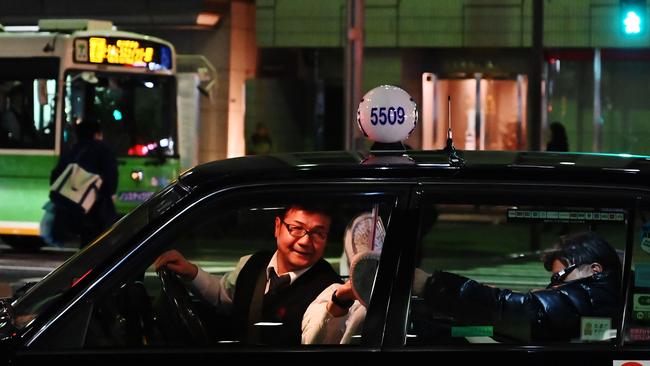How video game technology can help taxi drivers
Video game technology key to helping taxi drivers thrive in an uber-competitive industry.

Now that the idea of using an algorithm to find a cab is normal, one of the tech challenges of the moment is how to most efficiently route all of those drivers to all of those customers.
In Japan, where Uber is effectively banned but taxi competition is heated, a company has come up with a new way to solve the problem, drawing on what it has learned from cutting-edge video games as well as classic board games.
Tokyo-based DeNA Co, which helps Nintendo make the Super Mario Run smartphone game, has developed a service that uses artificial intelligence to direct cruising taxi drivers to streets where they are most likely to find customers. Drivers in Tokyo spend more than half their time steering an empty taxi, wasting time and gasoline while they look for business, according to the local taxi association.
DeNA says its app is different from other technologies that aim to connect drivers and customers in that it provides personalised verbal guidance, as if a veteran cabbie were sitting in the front seat and giving advice on where fares are likely to be standing and what rival drivers may be doing to get there first.
“It surprised me because I found a customer when I made a left, just as the app instructed, at a crossing where I always make a right turn,” says Yoshio Sato, who has been a driver for a decade in the city of Yokohama.
The DeNA app isn’t yet available for all taxis. The company says it wants to adjust the program and roll it out gradually.
“Our service calculates the best possible route to find a customer as skilled drivers would do, and it gives instructions verbally so they don’t need to pay attention to the screen,” says Reki Hase, DeNA’s head of auto-related artificial-intelligence development. “This may sound easy to do, but it’s hard to calculate from tons of data to pinpoint a route instantly.”
DeNA developed the app using its experience running multiplayer online video games, where each player is responding to the actions of others who are constantly moving.
Likewise, DeNA’s program draws on data from partner companies about nearby taxis — all in motion — to make rapid judgments tailored to a specific driver that can be updated quickly.
“Making sure it’s reliable and timely even when the number of vehicles wanting to receive the data increases a lot — that is what game companies do when running online games,” says Kazutaka Era, a DeNA engineer who used to work at a video game maker.
There’s a second artificial-intelligence aspect to the DeNA program that draws on a different kind of game -- board games such as chess and the Asian game of Go. Computers playing these games test multiple scenarios in simulations going through the end of the game to figure out the best next move. Then, after the opponent moves, they do it all over again.
DeNA developers say they study the latest theories behind such programs and incorporate them into their app.
Wall Street Journal



To join the conversation, please log in. Don't have an account? Register
Join the conversation, you are commenting as Logout